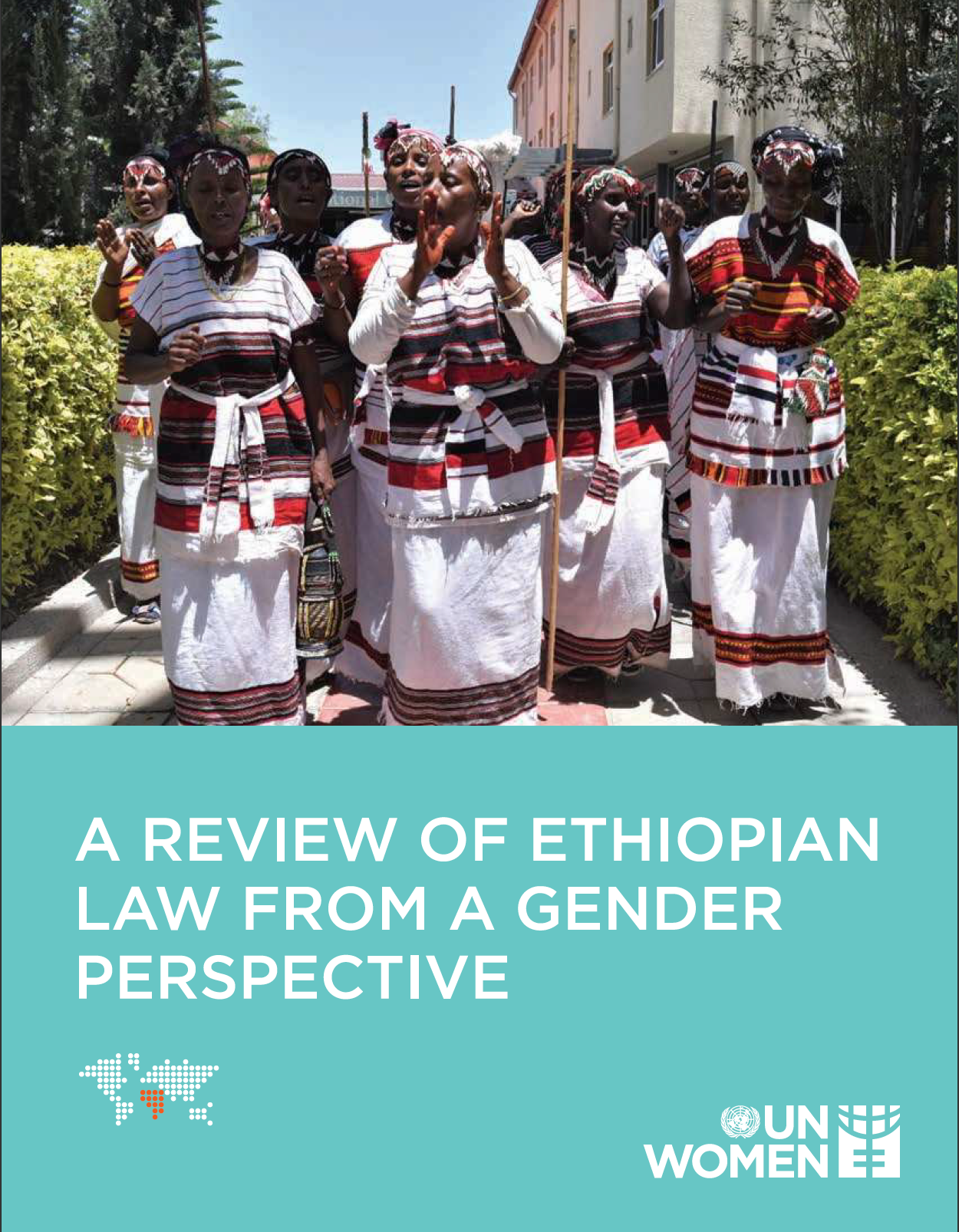
A Review of Ethiopian Law from a Gender Perspective

Ethiopia has made substantive and remarkable progress in ensuring that its laws recognize the equal rights of women. Apart from the Constitution, several laws, including Family and Criminal Codes, and Labor and Public Service Proclamations establish specific mechanisms to ensure women’s rights to practices that legally and explicitly subject women to subservience. Despite these advances, there are still laws with provisions that discriminate against women. Some of these laws emanate from outdated and discriminatory beliefs that see women as less capable or more fragile than men. Purporting to “protect” women, such laws preclude women from opportunities and resources that are available to men. Other laws that on their face treat men and women equally result in discrimination because they fail to address historical and institutionalized structures of inequality. The existence of such laws highlights the need to proactively tackle institutionalized discrimination through implementing special measures that level the playing field for women. In other cases, the absence of effective mechanisms of enforcement, including mechanisms to investigate and remedy grievances of discrimination and abusive practices, weaken or invalidate the rights and protections guaranteed to women under the law. Living up to the commitments of the Constitution calls for identifying and remedying discriminatory laws and gaps in the design, implementation and enforcement of such laws that result in the less than full realization of the rights to equality, non-discrimination and protection of women. The assessment adopted the normative and analytical framework of the FDRE Constitution, Ethiopia’s treaty obligations and the observations of the UN Committee on Women on Ethiopia’s progress in reviewing existing laws. Findings from the review and assessment led to the key recommendations for legal reform. Adoption of these recommendations will contribute to making sure that Ethiopian law aligns with the Constitution and Ethiopia’s obligations under international human rights law.